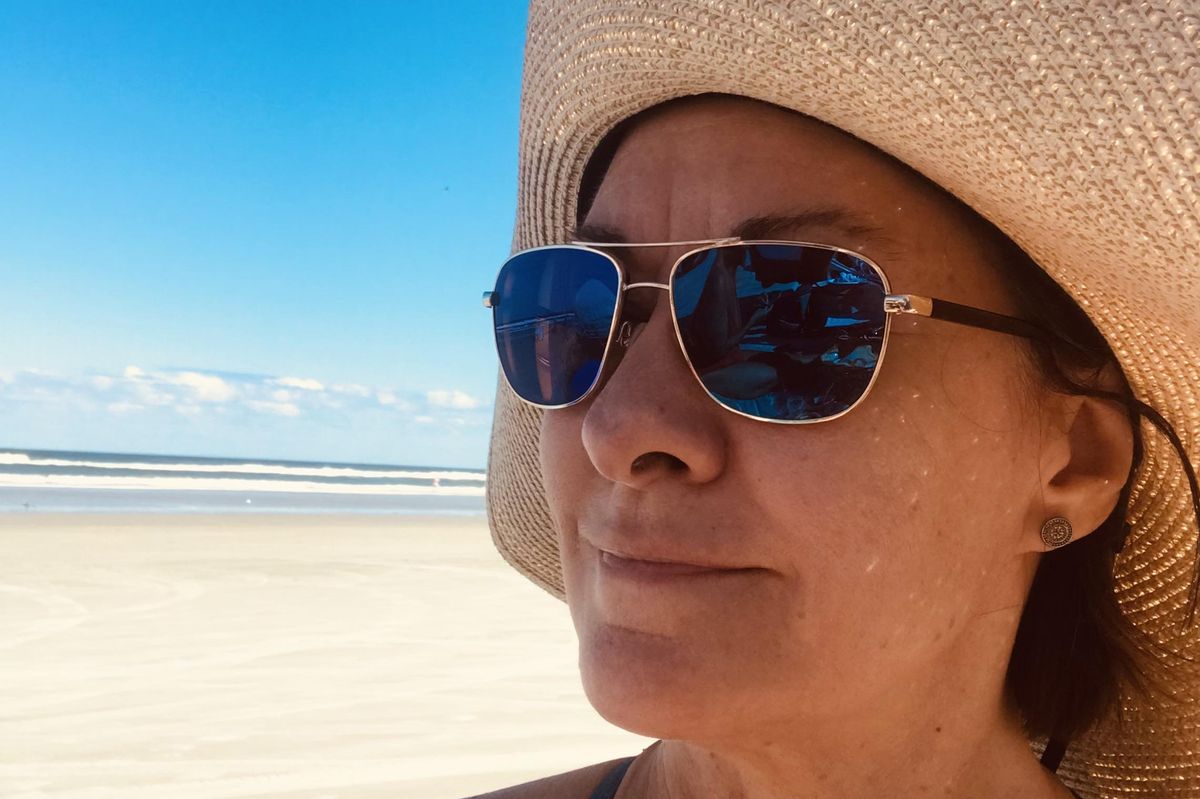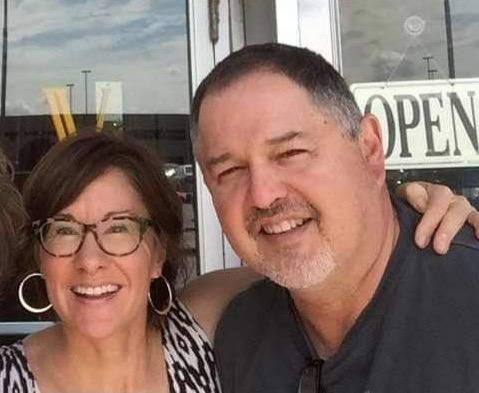As told to Nicole Audrey Spector
When I first got sick with
Covid in January 2021, I did my best to take care of myself, but it was hard. At that exact same time, my partner of 17 years, Richard, had just lost his father because of Covid complications a few months earlier — and now he too was sick with the virus. And he was faring far worse than me.
Soon after Richard fell ill, he was in the hospital and on a ventilator, his entire body under attack.
And then, a month later, he was gone.
Just like that, the love of my life became lost in the numbers of Covid deaths — one of the more than 1 million Americans killed by the virus. To say my heart was broken does not begin to describe the pain of losing him. I still struggle with post-traumatic stress disorder (PTSD). My brain has an evil tendency to replay Richard’s last days on Earth.
In the middle of all that sorrow and trauma, I barely had time to notice that I still wasn’t feeling back to normal after “recovering” from Covid. The fever went away, but I still had horrible fatigue, malaise, insomnia, brain fog, intense body aches and gut problems.
Eventually I went to the doctor to find out what was wrong.
“Grief,” the doctor said. “You’ve been through so much.”
That doctor wouldn’t be the last medical professional to chalk my symptoms up to grief. Friends and family who knew about my symptoms did the same thing. I can’t really blame them. I’d just lost my soulmate to this horrific virus and was dealing with all the ghastly estate matters that tend to follow an unexpected death.
Of course I wasn’t feeling good. It would, perhaps, be weird if I were.
So, life, in the towering shadow of death, went on. I did my best to persevere while feeling generally unwell. I wound up testing positive for Covid again in January 2022, but by then I’d been vaccinated, so my symptoms were less severe than the first time.
But yet again, I never really got better. Although I was testing negative, I felt generally under the weather and achy all the time. My sister suspected I had long Covid, which is now being called “post-Covid conditions.”
This past May, I made an appointment with a doctor. As soon as I described my symptoms to the nurse working with her, I felt heard and validated.
“It sounds like you definitely have long Covid,” the nurse said. “The doctor will be so happy to talk with you.”
I could have cried. I was so relieved to finally hear that there was a reason for my suffering.
The doctor was equally validating, as well as compassionate. The more she heard about what I was experiencing, the more confident she was that I would be a perfect candidate for a nationwide study on patients living with long Covid. I signed on to be a participant the following June.
I’m grateful to be a part of the study, but it doesn’t provide any treatment and certainly no cure. And it doesn’t help with my symptoms.
Every day, I wake up in enormous pain — aching literally from head to toe. Sometimes it takes me more than two hours to muster the strength to get out of bed.
I make a cup of coffee to help wake myself up. The smell of coffee brewing used to be one of my favorite smells in the world, but now it smells strange. Sour. It makes my stomach turn. My taste and smell have yet to go back to pre-Covid normal.
The worst part is the brain fog, followed by the joint pain and the fatigue. I have off and on gut issues and my eyesight is getting worse, which may be yet another side effect of long Covid. All of these issues contribute to my inability to do basic tasks as quickly and confidently as I used to do them. My productivity has plummeted.
It’s tough to decide whether the mornings or the nights are the worst. While the mornings are more physically painful, the mental anguish is more painful at night. My thoughts dart uncontrollably behind a haze of angst. Memories of my life with Richard and of our time together — and how abruptly it all ended — blast through my mind on repeat. I cannot blink them away.
In these painful moments, I often think of something one of the doctors caring for Richard said to me when he was in a medically induced coma on the ventilator. She said, “If Richard survives, he’ll be a long-hauler, and I really don’t think he’d want to live that way.”
It was a presumptuous and unprofessional thing to say to me. But it made quite an impact. By the time we had to make the difficult decision to take Richard off of life support, there was really no other choice to make. His body had been destroyed. But the doctor’s words echoed in my mind: “I really don’t think he’d want to live that way …”
And now here I am. Living with long Covid. And you know what? It sucks! But you know what else? In these past two years, I’ve received more love and encouragement than I ever could have imagined. People came from out of the woodwork to support me in my grief and lift me up from my despair.
So, while yes, long Covid is wildly unpleasant, to put it mildly, it’s also not the end of life, nor is it the end of hope. At 60 years old, I am hopeful as ever — hopeful that I will be able to continue to strengthen relationships with family and friends and that, eventually, I will feel healthy. I even hope to find love again.
By being part of the study on long Covid, I’m doing my part to contribute to scientific research and, ideally, provide information that can lead to a deeper understanding of long Covid and possibly even a cure someday.
So many people didn’t survive this virus, my love among them. I’m grateful to be alive and I can proudly say, “I’m in it for the long haul.”
This resource was created with support from Pfizer.
- COVID-19 “Long-Haulers” Are Finally Being Heard ›
- My Journey With Long Covid Symptoms ›
- Long Covid Changed Her Life Forever ›
- Grieving is Hard, Necessary Work and Coronavirus Makes it Harder - HealthyWomen ›
- Long Covid Symptoms Ended My Time as a C-Suite Executive - HealthyWomen ›
- How to Cope With the World When You're Mourning Covid Losses - HealthyWomen ›








